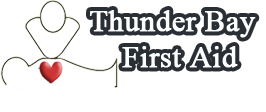Medically termed as atopic dermatitis, eczema refers to an itchy inflammation

of the skin. Eczema is a chronic condition which may take place along with hay fever or asthma.
Eczema can affect any region of the skin, but it usually takes place behind the knees and the arms. The exact cause of eczema is still not known yet, but it may be associated with inherited skin sensitivity and suppressed immune system upon exposure to an allergen or trigger. Many experts say that the reaction may take place in people who are allergic to certain triggers but eczema simply arises as a red flag of the condition causing it.
It is important that you consult your doctor if the skin condition interrupts your daily work and/or studies. Avoiding skin irritants such as creams, lotions, soaps and certain ointments may help relieve the condition as well.
Symptoms
- Itching—often worsens at night
- Red/brownish patches on the skin
- Fluid filled bumps that form crusts after being scratched
- Scaly or cracked skin
- Sensitivity of the skin due to scratching
Factors that may worsen eczema include:
- Sweating
- Dry skin
- Stress
- Long hot baths
- Atmospheric changes such as low humidity and quick changes in temperature
- Dirt, dust or sand
- Irritants such as cleaners, detergents and soaps
- Cigarette smoke
- Woolen fabrics—fabrics that may cause sweating
- High pollution areas
- Food such as milk, eggs, fish, wheat and soy
Treatment
- Apply cool, soothing lotions in order to reduce dryness of the skin
- Apply corticosteroid ointments
- You may takes anti-histamines under the consent of your doctor—this will help prevent itching
Tips
- Avoid scratching your skin too much as it may worsen the condition. Cut your nails short to prevent infection and bleeding
- Drink lots of water and take short, cool baths
- Consult your doctor about what soaps and moisturizers you should use to alleviate the condition
- Wear loose clothing and avoid woolen fabrics or fabrics that may make you sweat. Do not wear wet clothes and avoid using wet towels
- Do not share your personal belongings such as towels with family members to prevent the spread of infection
- Control your stress and do not overwork yourself
Additional Information
Individuals that have workplace approved first aid training will have a background in keeping wounds clean, preventing infection, recognizing and managing fever’s and providing care for asthma patients. Enrol in a first aid course today to learn these and more skills that can arise when managing patients with eczema.
Related Video
